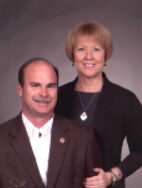LOOKING TO SPONSOR THIS WEB PAGE?
PLEASE EMAIL DENISE@MICHSAFETYCONFERENCE.ORG
Sponsorship is $200.00 and non-exclusive
This Training Division Page Sponsored By

Paul and Debbie DeNapoli
2024 Classes
Tuesday, April 16, 2024
10:15 am – 11:15 am
See Construction Division
11:30 am – 12:30 pm
See Construction Division
1:45 pm – 2:45 pm
Impaired Protection Procedures – Why do you need them? (Basic-Intermediate)
Richard Mahaney, Mahaney Loss Control Services
Impaired protection procedures after a fire or any other event that shuts down your fire suppression systems may save your facility if a second incident occurs and may be the reason that you get insurance money after a loss. Not having a plan or plans can make your facility susceptible to additional losses and could put your facility completely out of business for ever. These procedures and plans are so important to your facility and your insurance company and your policy!
Wednesday, April 17, 2024
9:00 am – 10:00 am
The Art of Crisis Communications (Intermediate)
Michael F. Fronimos, Assistant Fire Chief – Retired
The speaker will discuss the Art of Crisis Communications (the ability to handle internal and external communications during a crisis incident). He will also cover building relationships with stakeholders, organizational leaders, elected officials, and most importantly our own people, to be able to effectively communicate.
10:15 am – 11:15 am
Incident Management Teams (Basic)
Presenter: John Cieslik, CSP, Fire Chief, Rochester Fire Department
What is an incident management team anyway? Incident management is a process a company can utilize to manage planned and unplanned risk or events. Accidents, workplace violence, product launches and company events are examples of potential IMT involvement. It is impossible to make your incident management process happen without a skilled incident management team with clearly defined roles and responsibilities.
Each member of your incident management team (IMT) is essential to its operations and success. This presentation will discuss the roles of the IMT member, basic responsibilities, and skills, and how the team is structured and functions to manage the incident or event.
12:30 pm – 1:30 pm
NOAA National Weather Service Weather Spotter Training, part 1 (Basic)
Jim Maczko, Warning Coordination Meteorologist, Michigan, NOAA National Weather Service.
The National Weather Service relies on trained weather spotters to provide ground truth as part of its severe weather warning program. This presentation will teach the basics of severe weather and train attendees on how to become a weather spotter for the National Weather Service. It will also discuss the role of the National Weather Service in the protection of life and property and share weather safety and preparedness information regarding the various weather hazards faced throughout the year.
1:45 pm – 2:45 pm
NOAA National Weather Service Weather Spotter Training, part 2 (Basic)
Jim Maczko, Warning Coordination Meteorologist, Michigan, NOAA National Weather Service.
This is a continuation of the 12:30 pm program.
Division Members
Co-Chair
Mark Jones, CIH, CSP
Plastipak
Co-Chair
Paul DeNapoli, MSA, CFDSO, EMT-P
Retired Livonia Fire & Rescue
John Bennett, ITBMC, CBCP, CRISC, PEM
Hospital Network Ventures LLC
John Cieslik, BCSP
City of Rochester Fire Department
Will Hayes, PEM, CSSP, PCP
Canton Public Safety
Brian Kahn, PEM
Livonia Police Department
Maria Kinsler
Henry Ford Health
Kerri Lippert
Firekeepers Casino Hotel
Judith Wheeler, MSSM, CHSP, PEM, PCP
Beaumont Hospital
Mingyu Wu, PhD, CSP
Grand Valley State University

